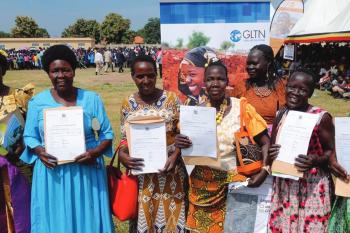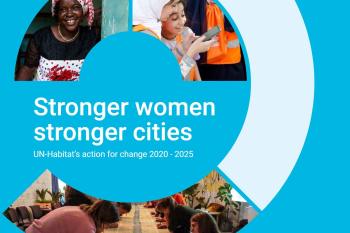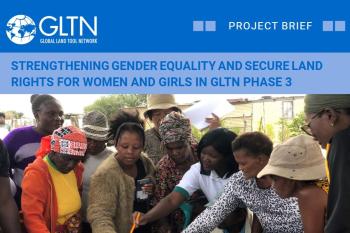
Read More
Gender Strategy for Land-at-Scale Uganda
Women’s Land Rights (WLRs) are fundamental human rights, foundational to gender equality and women’s dignity and instrumental in improving food security, effective climate action, poverty eradicati

This report is a contribution of the Arab Land Initiative towards the understanding of land policies, laws, regulations, and practices that shape the relationship between people and land in the Occupied Palestinian Territory.
Land management and administration in Palestine function in a unique context, where multiple overlapping legal frameworks inherited by successive foreign rulers define access to urban and rural lands and natural resources. The fragmentation of the territory, divided between the Gaza strip and West Bank, which is in turn divided into three areas (A, B and C) where different rules apply, creates further complexity and limits the ability of the Palestinian Land Authority to effectively execute its duties. Incomplete land registration, land tenure insecurity, forced evictions and the seizure of land are among the most pressing challenges.
Women are at a disadvantage in the enjoyment of their housing and land rights, mostly caused by discriminatory social norms. Recurring cycles of conflict and displacement aggravate the situation. In 2019, over 40 per cent of Palestinians were living in slum-like conditions in refugee camps and, as a result of the hostilities that erupted in October 2023, 80 per cent of the housing stock in the Gaza Strip has been destroyed or damaged, causing the displacement of 1.7 million people.
In spite of these challenges, Palestine has achieved important advances in the land sector, particularly regarding land registration, digitalisation and data protection, and the management of state properties.
This report analyses the land sector by looking at its legal and institutional set up, its stakeholders, and the key land administration functions: land tenure, land value, land use, land development, and land disputes’ resolution. The most important legislation is annexed and a set of preliminary recommendations for consideration by national stakeholders complement the report.

Women’s Land Rights (WLRs) are fundamental human rights, foundational to gender equality and women’s dignity and instrumental in improving food security, effective climate action, poverty eradicati

This publication presents a summary of UN-Habitat’s gender equality impact over the past five years, in line with the Beijing reporting cycle.

GLTN’s institutional commitment to gender equality and secure land rights for women and girls has been at the core of its work since inception in 2006.